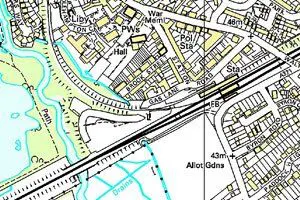Top 5 Reasons for Undertaking an Ecology Survey: A Guide for Landowners and Property Developers
Understanding the ecological value of a piece of land is of utmost importance, whether you’re a landowner looking to steward your land responsibly or a property developer planning a new project. One of the best ways to gain this understanding is through an ecology survey. Below, we explore the top five reasons why undertaking an ecology survey is a crucial step in land management and property development.
- Legal Compliance
An ecology survey is an essential tool for ensuring compliance with environmental laws and regulations. Many countries have stringent rules in place to protect specific species and habitats. By identifying the presence of such species or habitats on your land, an ecology survey ensures that your activities do not infringe on these protections, saving you from potential legal complications and penalties down the line.
- Informed Decision Making
An ecology survey provides valuable information about the ecological features of your site, helping you make informed decisions about its use. Whether you’re planning a construction project, considering different land management strategies, or assessing the potential value of a piece of land, the insights gained from an ecology survey can guide your decisions and help optimize your plans.
- Mitigating Environmental Impact
Ecology surveys play a vital role in assessing and mitigating the potential environmental impacts of land-use changes or development projects. They help identify sensitive areas that need to be protected and suggest measures to minimize harm to local wildlife and habitats. This proactive approach to environmental stewardship not only contributes to conservation efforts but can also enhance the reputation of your project or property.
- Enhancing Biodiversity
In addition to mitigating harm, ecology surveys can also inform efforts to enhance local biodiversity. By identifying existing habitats and species, the survey can suggest opportunities for creating new habitats, improving existing ones, or introducing native species. These actions can contribute to biodiversity net gain, a growing objective for many landowners and developers.
- Facilitating Stakeholder Engagement
Lastly, the findings of an ecology survey can facilitate engagement with various stakeholders, including local communities, environmental groups, and regulatory authorities. By clearly communicating the ecological value of your site and how you plan to protect and enhance it, you can build understanding and trust with these groups, making it easier to navigate any negotiations or consultations required for your project.
In conclusion, an ecology survey is more than just an assessment of your land’s ecology. It’s a tool for ensuring legal compliance, making informed decisions, mitigating environmental impacts, enhancing biodiversity, and facilitating stakeholder engagement. For any landowner or property developer, undertaking an ecology survey should be a key part of your strategy for managing and developing land responsibly.
In the realm of property development, protected species surveys are an indispensable part of the planning process. These surveys, which are designed to identify the presence of protected species on a site, are crucial for ensuring compliance with environmental legislation and promoting biodiversity. This article seeks to shed light on the importance of protected species…
In the modern era of property development and land management, environmental considerations are no longer optional – they are integral to successful project outcomes. For land agents, prioritising preliminary ecological appraisals is a key strategy for ensuring that the properties they represent align with the growing emphasis on sustainable and responsible development. Preliminary ecological appraisals,…
When planning a property development project, understanding the environmental implications is as important as the architectural and logistical aspects. Phase 1 habitat surveys play a vital role in this understanding, providing an essential foundation for effective project planning and execution. A phase 1 habitat survey is a standardised method for classifying and mapping habitats and…
A well-conceived habitat management plan has become an increasingly important part of responsible property development. Such a plan serves as a roadmap for maintaining, enhancing, and creating habitats for wildlife, while also enabling sustainable development. This article will delve into why a habitat management plan is not just beneficial but essential for today’s property developers,…
In an era where sustainable development and biodiversity conservation are becoming non-negotiable factors for businesses, ecology surveys have emerged as indispensable tools. Comprehensive ecology surveys, carried out by professional consultants, can provide valuable insights that directly contribute to your development project’s biodiversity net gain. An ecology survey is a systematic examination of a particular site…
Understanding the ecological value of a piece of land is of utmost importance, whether you’re a landowner looking to steward your land responsibly or a property developer planning a new project. One of the best ways to gain this understanding is through an ecology survey. Below, we explore the top five reasons why undertaking an…
Property developers are facing growing pressure to ensure their projects contribute to the conservation and enhancement of biodiversity. That’s where professional ecology services come into play. By leveraging expert guidance in the field of ecology, developers can plan and execute projects that not only respect local ecosystems but actively contribute to biodiversity net gain. Biodiversity…
In the era of rapid environmental change and biodiversity loss, it’s paramount for businesses and individuals alike to commit to enhancing biodiversity. This commitment, however, is not always straightforward to put into action. That’s where an ecology consultancy comes into play. A professional ecology consultancy is an essential partner for those looking to promote biodiversity…
For landowners navigating the complexities of responsible land stewardship in the 21st century, partnering with ecological consultants is not just a good idea—it’s a necessity. Ecological consultants bring a wealth of knowledge and expertise to land management, ensuring that land use and development adhere to both ecological principles and legal requirements. Ecological consultants provide crucial…
In today’s world, where the environment and sustainable practices are not just buzzwords but necessary components of business strategies, the importance of an ecological consultancy has grown exponentially. An ecological consultancy brings the crucial balance between property development and nature conservation, ensuring that the needs of businesses align with the welfare of the environment. One…






